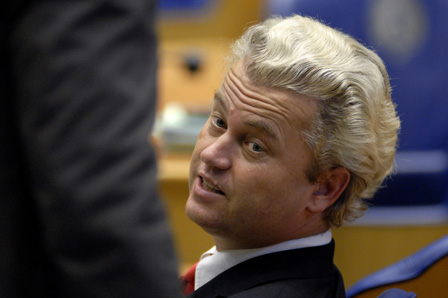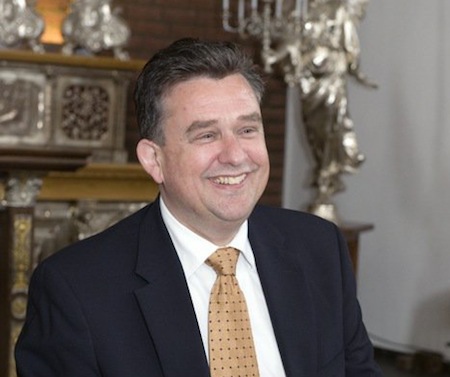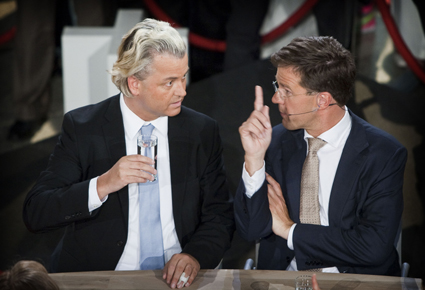As Dutch voters and the wider international world begin to pay attention to the Sept. 12 election, it’s becoming clear that ‘anti-austerity’ and ‘pro-austerity’ forces are coalescing behind the party of prime minister Mark Rutte (pictured above, top) and the Socialistische Partij (SP, the Socialist Party) of Emile Roemer (pictured above, below), leaving both newer and traditional parties of the Dutch political landscape floundering. ![]()
The election, which is typically followed by months-long coalitions talks, will have a significant impact on the ongoing political and economic eurozone crisis: a Rutte victory would bolster German chancellor Angela Merkel in her cause for Europe-wide austerity, while a Roemer victory would embolden a growing ‘pro-growth’ cause that includes French president François Hollande and, to some degree, Italian premier Mario Monti.
After a relatively quiet election season, Rutte, leader of the Volkspartij voor Vrijheid en Democratie (VVD, the People’s Party for Freedom and Democracy), is back in the spotlight with a promise to increase an existing tax break for workers (arbeidskorting) by €300 in 2013 and by €1,000 in 2014. The move is designed to sweeten the otherwise harsh effect of budget cuts that would lower the 2013 budget deficit to within 3% of GDP — last year’s budget was 4.7% of Dutch GDP, a shortfall that undermined Dutch credibility on the European stage. Since Rutte came to power in a minority coalition government in 2010, he has made broad cuts across the entire spectrum of government spending, and the Dutch retirement age is set to rise from 65 to 67.
Rutte’s attempt to pass more budget cuts in the Netherlands in April led to the fall of his government, when Geert Wilders, the leader of the Partij voor de Vrijheid (PVV, the Party for Freedom) refused to support further cuts — although the PVV had not been a formal member of the coalition, it had provided crucial outside support to Rutte’s government.
Wilders, who rose to prominence and much electoral success in 2010 on his anti-Muslim, anti-immigration platform, is campaigning in 2012 on a full withdrawal from the euro and from the European Union altogether (even though the Netherlands was one of the original six members of the European Coal and Steel Community in 1951). For whatever reason, however, voters are turning away from Wilders — much to Roemer’s benefit.
The subtext to Rutte’s drive to cut the Dutch budget is simple — he wants to retain the country’s pristine ‘AAA’ rating and keep the country out of any sovereign debt crisis and the ballooning yields that follow. Above all, Rutte is determined to keep the Netherlands within the terms set by the Maastricht Treaty that establishes the 3% target. The Netherlands is just one of four eurozone countries that has maintained its ‘AAA’ rating from each of the three major credit ratings agencies (joining Germany, Luxembourg and Finland). Continue reading Rutte and Roemer hope to consolidate support in Dutch election, as Europe watches nervously





